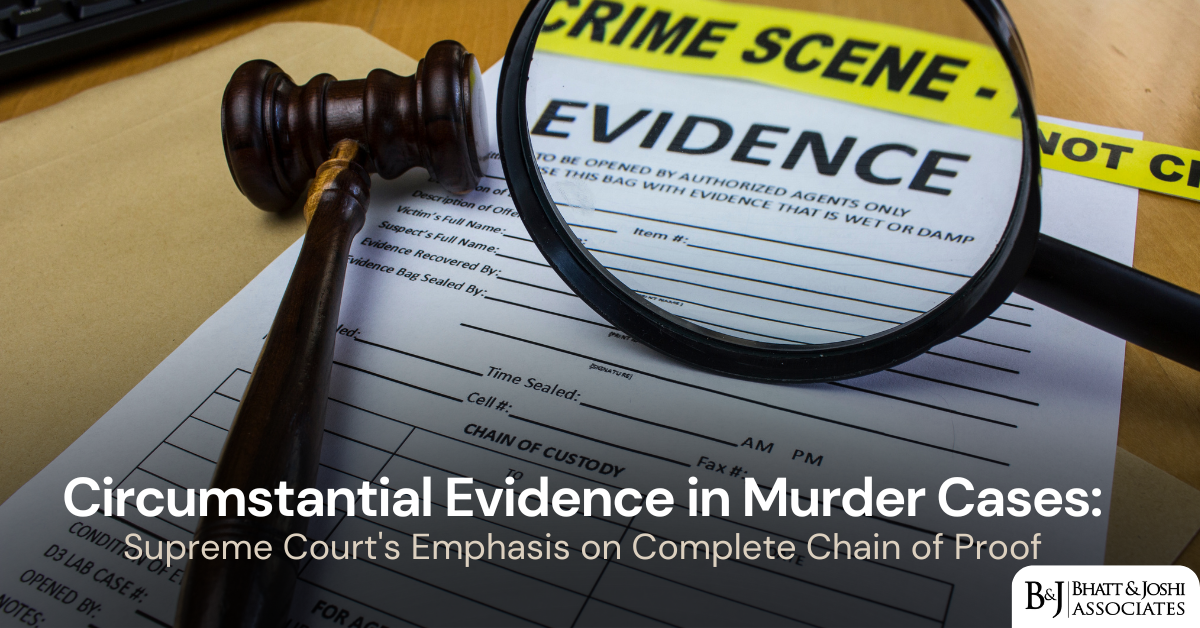Introduction
The fundamental right to life and personal liberty enshrined in Article 21 of the Indian Constitution stands as a cornerstone of individual freedom within the democratic framework. Article 21 declares that “No person shall be deprived of his life or personal liberty except according to procedure established by law”, establishing an inviolable protection for every citizen against arbitrary detention and unwarranted restrictions on personal freedom. This right also forms the basis for judicial scrutiny in matters involving modification and deletion in bail conditions, ensuring that such conditions do not disproportionately infringe on personal liberty.
When an individual transgresses the boundaries of law, the state machinery responds with legal consequences that may involve the curtailment of personal liberty. However, the deprivation of freedom pending trial raises profound constitutional and humanitarian concerns. The criminal justice system recognizes that pre-trial detention should not become a form of punishment before guilt is established, leading to the development of comprehensive bail jurisprudence that balances individual liberty with societal interests, including through mechanisms for modification and deletion in bail conditions when circumstances evolve.
The courts are mandated to consider multiple factors when determining bail applications for non-bailable offences. These considerations encompass the nature and gravity of the alleged offence, the character and antecedents of the accused, the quality of evidence presented, circumstances unique to the accused individual, reasonable apprehension regarding witness tampering or intimidation, broader public interest, and the maintenance of law and order. This multifaceted assessment ensures that bail decisions are neither arbitrary nor prejudicial to either the accused or the prosecution.
The judicial obligation extends beyond mere grant or refusal of bail to encompass the imposition of reasonable and proportionate conditions that serve legitimate procedural purposes. Courts must render bail decisions expeditiously, supported by reasoned analysis that reflects careful consideration of the applicant’s character, conduct, and the prevailing factual circumstances.

Legal Framework Governing Bail Conditions
Statutory Provisions Under the Criminal Procedure Code
The Code of Criminal Procedure, 1973 (CrPC) provides a comprehensive framework for bail-related proceedings through various provisions that delineate the powers, procedures, and limitations governing judicial discretion in bail matters.
Section 437 of the CrPC establishes the foundational principles for granting bail in non-bailable offences. This provision empowers courts to release accused persons on bail while maintaining judicial discretion to impose necessary conditions. The section specifically addresses situations where the accused faces charges carrying potential punishment of seven years or more imprisonment, or offences under specific chapters of the Indian Penal Code.
Sub-section (3) of Section 437 mandates specific conditions for certain categories of offences, requiring that released persons: (a) attend court proceedings in accordance with bond conditions; (b) refrain from committing similar offences; and (c) avoid any direct or indirect inducement, threat, or promise to persons acquainted with case facts that might dissuade them from disclosing information to the court or police, or tampering with evidence.
Section 438 of the CrPC governs anticipatory bail, enabling individuals who reasonably apprehend arrest for non-bailable offences to seek pre-arrest bail. This provision reflects the legislature’s recognition that influential persons sometimes misuse the criminal justice system to implicate rivals in false cases for the purpose of disgrace or harassment.
Section 439 of the CrPC confers special powers upon the High Court and Court of Sessions regarding bail matters. Under Section 439(1)(b), the High Court or the Court of Sessions can exercise modification and deletion in bail conditions imposed by magistrates when releasing an accused on bail. This provision establishes a hierarchical system of judicial review and ensures that bail conditions remain reasonable and proportionate.
Constitutional Framework and Fundamental Rights
The constitutional foundation for bail jurisprudence rests primarily on Article 21, which has been interpreted expansively by the Supreme Court to encompass various dimensions of personal liberty. The courts have consistently held that the right to bail, while not explicitly mentioned in the Constitution, derives from the broader guarantee of personal liberty and the presumption of innocence until proven guilty.
The Supreme Court has emphasized that the object of bail is neither punitive nor preventative. Deprivation of liberty must be considered a punishment, unless it is required to ensure that an accused person will stand his trial when called upon. This principle establishes that pre-trial detention should serve only the limited purpose of securing the accused’s presence during trial proceedings.
Judicial Considerations for Granting Bail
Fundamental Principles Established by the Supreme Court
Based on Section 438(1) of CrPC, the Supreme Court has enumerated a detailed and exhaustive list of considerations while deciding anticipatory bail. These considerations include:
Assessment of Crime Gravity and Accused’s Role: Courts must understand the seriousness of the alleged offence and the specific role attributed to the accused before making arrest or bail decisions. This evaluation helps determine whether the circumstances warrant pre-trial detention or whether release on bail would be appropriate.
Previous Criminal Record: The court examines any prior convictions, particularly for non-bailable offences, as this history may indicate the likelihood of repeat offences or non-compliance with bail conditions. However, previous accusations without convictions should not automatically prejudice bail considerations.
Flight Risk Assessment: Courts evaluate the probability that the applicant might flee from justice, considering factors such as the accused’s roots in the community, family ties, employment status, and financial circumstances that might influence their willingness to abscond.
Potential for Repeat Offences: The assessment includes evaluating whether releasing the accused might lead to similar or other criminal activities, particularly in cases involving ongoing criminal enterprises or patterns of behaviour.
Motivation Behind Accusations: Courts must discern whether the accusations stem from genuine criminal activity or represent attempts to injure or humiliate the applicant through wrongful arrest and detention. This consideration helps prevent misuse of criminal law for personal vendettas.
Specific Role Analysis: Beyond general involvement, courts examine the precise role attributed to each accused person, recognizing that different levels of culpability may warrant different bail considerations.
Evidence Tampering Concerns: Courts assess reasonable apprehensions regarding the accused’s potential to tamper with evidence, intimidate witnesses, or threaten complainants if released on bail.
Conditions Imposed During Bail Grant
Statutory Authority for Condition Imposition
Section 437 of the Code of Criminal Procedure empowers the Court to impose conditions at the time of granting bail. However, this power is not absolute and must be exercised judiciously to ensure that imposed conditions serve legitimate procedural purposes without becoming unduly burdensome or punitive.
The judicial duty encompasses ensuring that bail conditions remain consonant with the statutory framework’s intent and provisions. Courts must avoid imposing conditions that are impractical, unfair, or disproportionate to the circumstances of the case and the accused individual.
Limitations on Condition Imposition
The Supreme Court has established clear boundaries regarding the types and extent of conditions that may be imposed during bail proceedings. In the landmark case of Munish Bhasin and Others v. State (Government of NCT of Delhi) and Another (2009) 4 SCC 45, the Court addressed the issue of onerous bail conditions in a domestic violence case.
The Court held that “It is well settled that while exercising discretion to release an accused under Section 438 of the Code neither the High Court nor the Sessions Court would be justified in imposing freakish conditions. There is no manner of doubt that the court having regard to the facts and circumstances of the case can impose necessary, just and efficacious conditions while enlarging an accused on bail under Section 438 of the Code. However, the accused cannot be subjected to any irrelevant condition at all”.
The Court further emphasized that “While imposing conditions on an accused who approaches the court under Section 438 of the Code, the court should be extremely chary in imposing conditions and should not transgress its jurisdiction or power by imposing the conditions which are not called for at all. There is no manner of doubt that the conditions to be imposed under Section 438 of the Code cannot be harsh, onerous or excessive so as to frustrate the very object of grant of anticipatory bail under Section 438 of the Code”.
Legitimate Purposes for Bail Conditions
Courts may impose conditions that serve specific legitimate purposes within the criminal justice framework. These include:
Securing Court Attendance: Conditions may be designed to ensure the accused’s regular attendance at court proceedings, including requirements for periodic reporting to designated authorities or restrictions on travel without court permission.
Preventing Flight: Reasonable restrictions on movement, surrender of passport, or requirements to remain within specified geographical boundaries may be imposed to prevent the accused from fleeing jurisdiction.
Evidence Protection: Conditions may prohibit direct or indirect contact with witnesses, complainants, or other persons connected to the case to prevent evidence tampering or witness intimidation.
Public Order Maintenance: In appropriate cases, conditions may restrict the accused’s presence in particular areas or association with specific individuals to maintain law and order.
Investigation Cooperation: Requirements for the accused to cooperate with investigating authorities, appear for questioning when summoned, or provide necessary documents may be imposed.
Object and Philosophy of Bail
Supreme Court’s Pronouncement in Sanjay Chandra Case
The Supreme Court’s decision in Sanjay Chandra v. Central Bureau of Investigation (2012) 1 SCC 40 provides crucial guidance on the fundamental philosophy underlying bail jurisprudence. The Court observed that “In bail applications, generally, it has been laid down from the earliest times that the object of bail is to secure the appearance of the accused person at his trial by reasonable amount of bail. The object of bail is neither punitive nor preventative. Deprivation of liberty must be considered a punishment, unless it can be required to ensure that an accused person will stand his trial when called upon”.
This pronouncement establishes several fundamental principles that guide bail jurisprudence:
Prevention of Pre-trial Punishment: The Court emphasized that “The courts owe more than verbal respect to the principle that punishment begins after conviction, and that every man is deemed to be innocent until duly tried and duly found guilty”. This principle ensures that pre-trial detention does not become a form of anticipatory punishment.
Improper Purposes for Bail Refusal: The Court specifically addressed inappropriate motivations for denying bail: “Apart from the question of prevention being the object of refusal of bail, one must not lose sight of the fact that any imprisonment before conviction has a substantial punitive content and it would be improper for any court to refuse bail as a mark of disapproval of former conduct whether the accused has been convicted for it or not or to refuse bail to an unconvicted person for the purpose of giving him a taste of imprisonment as a lesson”.
Discretionary Jurisdiction: The Court noted that “The provisions of CrPC confer discretionary jurisdiction on criminal courts to grant bail to the accused pending trial or in appeal against convictions; since the jurisdiction is discretionary, it has to be exercised with great care and caution by balancing the valuable right of liberty of an individual and the interest of the society in general”.
Constitutional Framework: The Court reaffirmed that “This Court, time and again, has stated that bail is the rule and committal to jail an exception. It has also observed that refusal of bail is a restriction on the personal liberty of the individual guaranteed under Article 21 of the Constitution”.
Interpretation of “Interest of Justice”
The Supreme Court’s decision in Kunal Kumar Tiwari v. State of Bihar (2018) 16 SCC 74 provided important clarification regarding the scope of conditions that may be imposed under Section 437(3)(c) of the CrPC. The Court observed that “Undisputedly, clause (c) of Section 437(3) allows courts to impose conditions in the interest of justice. Palpably, such wordings are capable of accepting broader meaning but such conditions cannot be arbitrary, fanciful or extend beyond the end of provision. Phrase ‘interest of justice’ is used under clause (c) of section 437(3) means ‘good administration of justice’ or ‘advancing the trial process’ and inclusion of broader meaning should be shunned because of purposive interpretation”.
This interpretation establishes that the phrase “interest of justice” should be construed narrowly to encompass only those conditions that genuinely advance the trial process or promote good administration of justice, rather than serving as a catchall provision for imposing arbitrary restrictions.
Modification and Deletion of Bail Conditions
Statutory Framework Under Section 439
Under Section 439, the Court of Sessions or High Court has the power to modify or set aside certain bail conditions on reasonable grounds. This provision reflects the principle of modification and deletion in bail conditions, recognizing that circumstances may change during the pendency of criminal proceedings, thereby necessitating adjustments to previously imposed conditions in the interest of justice.
The power to modification and deletion in bail conditions serves several important functions within the criminal justice system:
Adaptation to Changed Circumstances: As cases progress and new information becomes available, previously imposed conditions may become unnecessary, inappropriate, or unduly burdensome.
Correction of Excessive Conditions: Superior courts may review and modify conditions imposed by lower courts that exceed reasonable bounds or serve no legitimate purpose.
Recognition of Compliance: If the accused is able to satisfy the court that he has followed all the bail conditions and cooperated with the police or investigating authorities then the court may modify or relax the bail conditions.
Grounds for Modification and Deletion in Bail Conditions
Courts consider various factors when evaluating applications for modification of bail conditions:
Demonstrated Compliance: The accused’s track record of adhering to existing bail conditions and cooperating with legal proceedings demonstrates reliability and may justify relaxation of restrictions.
Changed Personal Circumstances: Significant changes in the accused’s personal, professional, or family circumstances may necessitate modification of travel restrictions or other conditions.
Progress of Investigation: As investigations advance and evidence is secured, concerns about evidence tampering or witness intimidation may diminish, justifying relaxation of related conditions.
Proportionality Assessment: Courts may reconsider whether existing conditions remain proportionate to the charges and circumstances of the case.
Travel Restrictions and Their Modification
Constitutional Right to Travel
The right to travel, both within the country and abroad, has been recognized as an integral component of personal liberty under Article 21 of the Constitution. However, this right is not absolute and may be reasonably restricted in the interests of justice and public order.
Courts often impose travel restrictions as bail conditions to ensure the accused’s availability for trial proceedings and prevent flight from justice. These restrictions typically include:
State-wise Restrictions: Prohibiting the accused from leaving the territorial boundaries of a particular state without court permission.
International Travel Bans: Requiring surrender of passports and prohibiting foreign travel during the pendency of proceedings.
Reporting Requirements: Mandating periodic reporting to designated police stations or courts.
Judicial Approach to Travel Restriction Modification
Courts have developed a balanced approach to modifying travel restrictions that recognizes both the need for ensuring the accused’s presence and their legitimate personal and professional requirements.
Professional and Business Necessities: Courts acknowledge that many accused persons have professional obligations or business interests that may require travel. The Gujarat High Court addressed this issue in IMTIYAZ ABDULLA CHAKKIWALA & 2 v. STATE OF GUJARAT & 1 (CR.MA/3236/2012).
In this case, “the accused had to travel often outside of india for the business purposes, the court held to relax and modify the conditions and held that whenever applicant leaves the country and travels abroad, he will inform the Directorate of Revenue Intelligence in advance and the condition imposed shall remain in abeyance and, thereafter, it will be revived automatically”.
Domestic Travel Requirements: The Gujarat High Court also addressed domestic travel restrictions in JAYDEVSINH PRATAPSINH ZALA v. STATE OF GUJARAT (R/CR.MA/1305/2015). The accused “approached the Hon’ble Gujarat High Court seeking modification of condition stating he cannot leave State of Gujarat without prior permission of Sessions Judge concerned. The applicant submitted that view of business assignment and necessity to travel outside the State of Gujarat the above condition operates against the interest of the applicant and in the past he had applied either for modification or relaxation of such condition. The court was pleased to relax the condition and allowed the accused to travel outside of Gujarat while intimating the local police station”.
Procedural Requirements for Travel Modification
When seeking modification of travel restrictions, applicants must typically demonstrate:
Legitimate Purpose: The travel must serve genuine personal, professional, or family needs rather than attempts to evade legal proceedings.
Continued Availability: Assurance that the accused will remain available for court proceedings and investigation requirements.
Advance Notice: Providing adequate notice to investigating agencies and courts regarding travel plans.
Appropriate Safeguards: Willingness to accept modified conditions that address legitimate concerns about flight risk while permitting necessary travel.
Contemporary Judicial Trends and Recent Developments
Supreme Court’s Enhanced Scrutiny of Bail Conditions
Recent Supreme Court decisions have demonstrated increased vigilance regarding excessive or inappropriate bail conditions. The Court has consistently emphasized that bail conditions must serve legitimate procedural purposes rather than operating as disguised forms of punishment or social engineering.
Prohibition of Social Engineering: Courts have rejected attempts to use bail conditions as vehicles for imposing moral or social obligations unrelated to the criminal proceedings. The Supreme Court’s decision in Aparna Bhat v. State of Madhya Pradesh (2021) specifically addressed this issue in the context of sexual offence cases.
Gender Sensitivity: The judiciary has become increasingly aware of the need to avoid bail conditions that perpetuate gender stereotypes or impose patriarchal assumptions about women’s behavior and autonomy.
Economic Considerations: Courts have shown greater sensitivity to the economic impact of bail conditions, recognizing that excessive financial requirements may effectively deny bail to economically disadvantaged accused persons.
Standardization of Bail Practices
The Supreme Court has emphasized the need for consistency in bail practices across different courts and jurisdictions. This includes:
Guidelines for Lower Courts: Higher courts have provided detailed guidance to subordinate courts regarding appropriate considerations for bail decisions and condition imposition.
Training and Awareness: Judicial training programs increasingly emphasize the constitutional dimensions of bail jurisprudence and the importance of protecting individual liberty while serving legitimate procedural needs.
Documentation Requirements: Courts are required to provide detailed reasoning for bail decisions and condition imposition, enabling effective appellate review.
Practical Challenges and Solutions
Administrative Efficiency
The criminal justice system faces significant challenges in implementing effective bail procedures while maintaining administrative efficiency:
Case Load Management: Heavy case loads in many courts can lead to hasty bail decisions without adequate consideration of individual circumstances.
Documentation and Record Keeping: Maintaining comprehensive records of bail conditions and compliance status requires robust administrative systems.
Inter-agency Coordination: Effective implementation of bail conditions often requires coordination between courts, police, and other agencies.
Technology Integration
Modern criminal justice systems increasingly rely on technology to enhance bail administration:
Electronic Monitoring: GPS tracking and other electronic monitoring systems enable courts to impose effective restrictions while allowing greater personal freedom.
Digital Case Management: Computerized case management systems facilitate tracking of bail conditions and compliance status.
Online Reporting: Digital platforms enable accused persons to comply with reporting requirements more efficiently.
Legal Aid and Access to Justice
Ensuring equal access to bail procedures regardless of economic status remains a significant challenge:
Legal Representation: Effective bail advocacy requires competent legal representation, which may not be available to all accused persons.
Financial Resources: Many bail-related requirements involve financial obligations that may be beyond the means of economically disadvantaged individuals.
Information Access: Understanding complex bail procedures and available remedies requires legal knowledge that may not be readily accessible to ordinary citizens.
Conclusion: Evolving Jurisprudence on Modification and Deletion in Bail Conditions
The jurisprudence surrounding modification and deletion of bail conditions reflects the ongoing evolution of criminal justice principles toward greater protection of individual liberty while maintaining essential safeguards for the integrity of legal proceedings. The provision for bail should not be used to detain and arrest an accused person; rather, it should be used to guarantee his appearance at the trial and ensure that, if the accused is found guilty, he will be able to face the legal consequences of the crime as it was done.
Fundamental Principle of Liberty: Depriving the alleged accused of his liberty while the criminal case against him is pending would be unfair and unjust. This principle requires courts to maintain a careful balance between individual rights and societal interests.
Judicial Responsibility: The Court is obligated to consider the facts and circumstances prevailing in the matter, strike a balance between considerations and imposition of reasonable conditions, and then pass the appropriate order. This responsibility encompasses both the initial decision to grant bail and subsequent modifications as circumstances evolve.
Broader Social Impact: The release on bail upon appropriate considerations and imposition of reasonable conditions is significant not only to the accused and his family members who may be dependent on him but also to society as a whole. Effective bail procedures contribute to public confidence in the justice system and promote social stability.
The future development of bail jurisprudence will likely focus on several key areas:
Enhanced Judicial Training: Continuing education for judges regarding constitutional principles, contemporary legal developments, and best practices in bail administration.
Technology Integration: Expanded use of technology to improve efficiency, accuracy, and accessibility of bail procedures while maintaining human judgment in individual cases.
Standardization and Guidelines: Development of more detailed guidelines and standards to promote consistency while preserving necessary judicial discretion.
Access to Justice: Continued efforts to ensure that effective bail procedures remain accessible to all individuals regardless of economic status or social position.
International Best Practices: Learning from successful bail reform initiatives in other jurisdictions while adapting approaches to Indian constitutional and legal frameworks.
The modification and deletion of bail conditions represents a crucial aspect of criminal justice administration that directly impacts individual liberty and public confidence in the legal system. As the jurisprudence continues to evolve, courts must remain vigilant in protecting fundamental rights while serving the legitimate needs of criminal justice administration.
References and Citations
- Munish Bhasin and Others v. State (Government of NCT of Delhi) and Another, (2009) 4 SCC 45. Available at: https://indiankanoon.org/doc/949074/
- Sanjay Chandra v. Central Bureau of Investigation, (2012) 1 SCC 40. Available at: https://www.casemine.com/judgement/in/5609af0ee4b014971141579d
- Kunal Kumar Tiwari v. State of Bihar, (2018) 16 SCC 74.
- The Code of Criminal Procedure, 1973, Sections 437, 438, and 439. Available at: https://devgan.in/crpc/chapter_33.php
- Constitution of India, Article 21.
- IMTIYAZ ABDULLA CHAKKIWALA & 2 v. STATE OF GUJARAT & 1, CR.MA/3236/2012, Gujarat High Court.
- JAYDEVSINH PRATAPSINH ZALA v. STATE OF GUJARAT, R/CR.MA/1305/2015, Gujarat High Court.
- Aparna Bhat v. State of Madhya Pradesh, (2021) SCC.
- Arnesh Kumar v. State of Bihar, (2014) 8 SCC 273.
- Guddan @ Roop Narayan v. State of Rajasthan, 2023 LiveLaw (SC) 45.
PDF link
- https://bhattandjoshiassociates.s3.ap-south-1.amazonaws.com/judgements/Munish_Bhasin_Ors_vs_State_on_20_February_2009.PDF
- https://bhattandjoshiassociates.s3.ap-south-1.amazonaws.com/judgements/Kunal_Kumar_Tiwari_Kunal_Kumar_vs_The_State_Of_Bihar_on_21_August_2017.PDF













